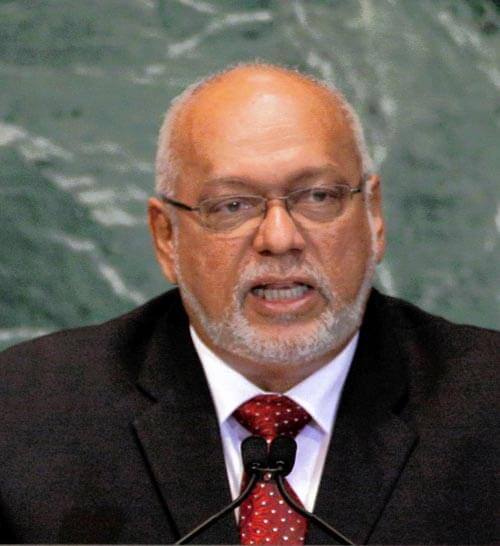Guyana’s main opposition party has virtually killed and buried a controversial hydro electric project that government had built up as its infrastructural showpiece but which many in the opposition and professional communities have said is riddled with overpricing and millions in kickbacks for those with power and political connections.
The Amaila Falls Hydro Power Project in the central Potaro Region was slated to come on stream in about 10 years, providing clean hydro power from the heart of the country’s Amazonian jungles all the way to the city with its transmission pylons hopping over streams and rivers, mountains, dirt roads and thick forest, connecting with the national grid system at Linden town, about 65 miles from the city.
But with a price tag of $840 million dollars an counting and with a highly complex financing scheme involving the Chinese government, the Inter American Development Bank (IDB) U.S.-based Sithe Global LLC and others, neither of the two main opposition parties, the APNU and the AFC, nor a growing band of Guyanese citizens say they are comfortable with the project in the way it is currently configured.
And even though the Alliance For Change (AFC) has been giving mix parliamentary signals on whether it will support the project or not, the APNU of former army commander Brig. Gen. David Granger has vowed to continue opposing it until the project is retendered internationally, parliament is brought fully up to date with every detail and until it is convinced that Amaila will not be an expensive white elephant as the barely functioning $200M Chinese-built Skeldon Sugar factory near the border with Suriname.
Shaken up by the growing opposition to the project, Sithe Global announced at the weekend that it was walking away from both the project and the country, blaming the rising political temperature and the lack of political unanimity for its decision.
“Unfortunately not all parties were willing to set aside politics for the broader public good and as a result today we reluctantly announce our withdrawal from the project,” said Sithe.
The move has put the administration of President Donald Ramotar on the defensive and has clearly embarrassed him domestically and internationally, leading to a clamor among governing party faithful for fresh elections to reverse the one-seat parliamentary advantage of the APNU and the AFC.
Ramotar has vowed to find new international partners to get the project up and running, to help end 40 years of rolling blackouts and to provide clean electricity in keeping with the low carbon emissions thrust of the administration.
But critics such as former governing party presidential adviser Raymond Gaskin, have repeatedly rolled out figures showing that the country will pay dearly for a badly negotiated deal, which will be costlier than the current national foreign debt of about $1.2B.
Gaskin who has a copy of the contract, argues that taxpayers will end up paying about $2.3B over the next 20 years because the Guyana Power and Light utility that will but the hydro power will have to pay around $122M annually for about 12 years as part of the deal the administration of previous President Bharrat Jagdeo had negotiated with the main players.
“The figure of $840M is only the capital for the project. It has nothing to do with interest payments to the Chinese nor the IDB for example. The IDB is charging us nine percent when it is normally no more than two percent because of the high risk nature of the deal. Overall, we will end up doubling the national debt.”
As he makes a case for Amaila Falls, Ramotar has in recent days produced figures showing that current electricity rates will fall by up to 91 percent in the coming years but from all indications, the focus now is more on the project figures than on the future.





















